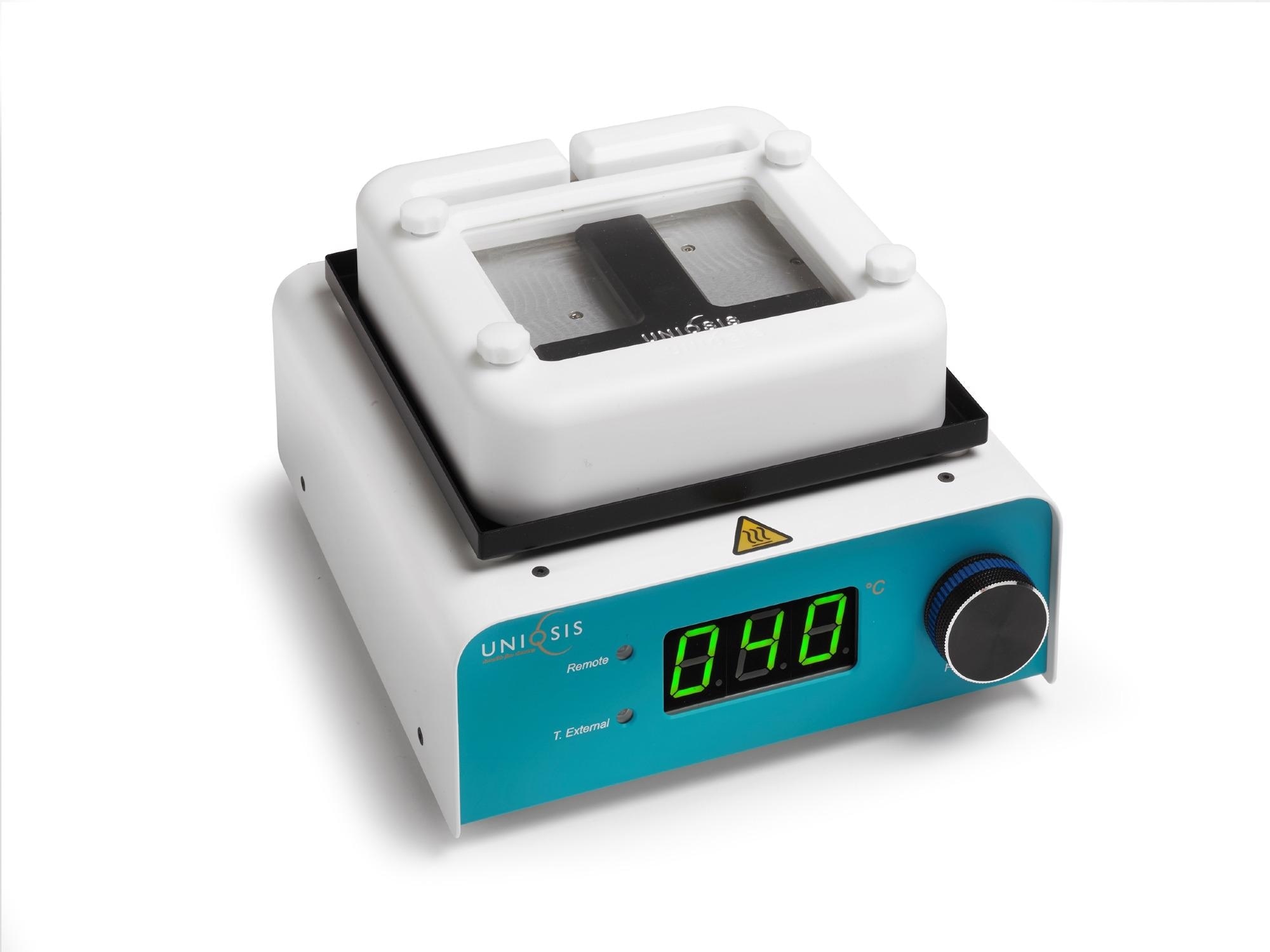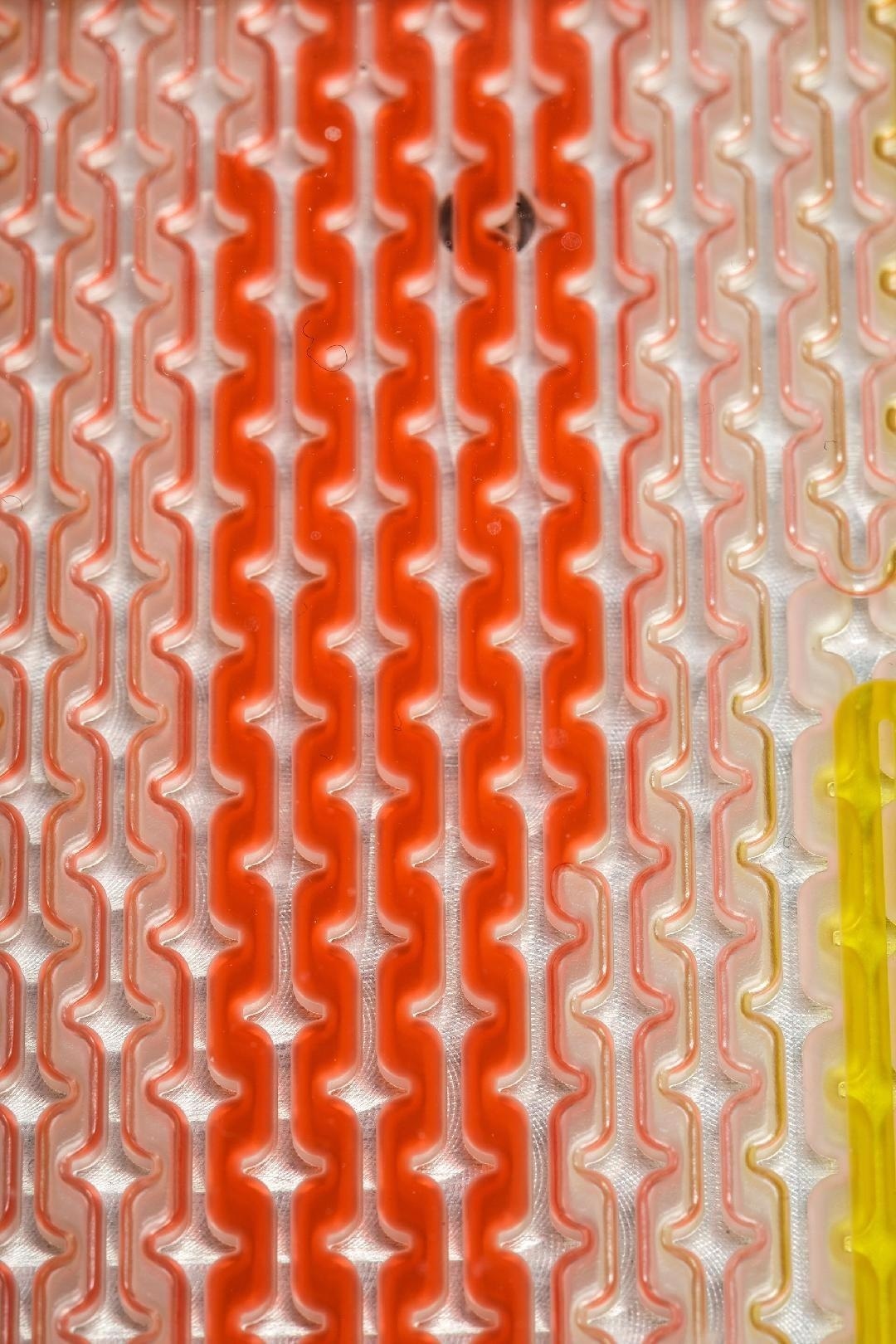The Uniqsis range of Glass Static Mixer (GSM) chip reactor blocks produce an efficient, turbulent mixed reagent stream for flow chemistry reactions that is not diffusion dependent.

A HotChip module fitted with a GSM chip adapter
To achieve highly reproducible flow chemistry scale-up the control of mixing and temperature is essential, particularly for highly exothermic or fast, mixing-dependent reactions
Now available in sizes from 270µl to 20 ml, the recently expanded range of GSM chips from Uniqsis can be used to perform reactions from -80°C to over 150°C. GSM chips up to 2 ml can be operated up to 40-bar and are available in 2-channel or 3-channel inlet configurations. Larger GSM chips of 10ml and 20 ml have a premixing channel followed by a residence domain and can operate up to 10-bar.
GSM chips can be used as mixing modules prior to a coil reactor residence time unit, or as reactor blocks for rapid exothermic reactions such as nitration’s. Nitration is an important synthetic procedure that, following the reduction of the nitro group, provides a
useful route for the introduction of amino groups onto aromatic rings. Uniqsis Application Note 22 (https://www.uniqsis.com/fcApplications.aspx) describes how a GSM chip was used to control both temperature and mixing. Under these controlled conditions, selective mono-nitration was rapidly performed at elevated temperature to maximise throughput.

Close-up of GSM chip reactor block
Uniqsis GSM chips are precision machined from inert borosilicate glass to withstand a wide temperature range and can be conveniently attached to a FlowSyn column heater module, Cold Coil, or Polar Bear Plus cryogenic reactor modules.
For further information on GSM chip reactor blocks please visit https://www.uniqsis.com/paProductsDetail.aspx?ID=ACC_CHIP or contact Uniqsis on +44-845-864-7747 / [email protected].